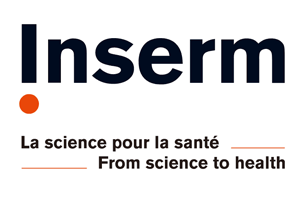THIS WEBSITE USES COOKIES
We use cookies to personalise content, to provide social media features, and to analyse our traffic. By choosing 'allow all cookies', you consent to our cookies.
To find out more, read our privacy policy and cookie policy.
Institut National de la Santé et de la Recherche Médicale (INSERM), Institut de Recherche en Cancérologie de Montpellier (IRCM), France

DC13 supervisor
After completing a PhD in Immunology at CIML (Marseille, France), I turned to the study of protein synthesis in the context of viral infection at NIAID (NIH, Bethesda, USA). I was particularly interested in the mechanisms by which viruses hijack the translational machinery for their own purposes. Through the development of microscopy and biochemistry techniques, my work has led to a better understanding of the molecular variables involved in the spatial regulation of protein synthesis. Following my return to France as Principal Investigator, I set up a research group focusing on the contribution of post-transcriptional mechanisms on cancer cell adaptation, in particular RNA epigenetics & translational control. Following decades of near-dormancy, RNA epigenetics (a.k.a. “epitranscriptomics”) experienced a rebirth, mostly thanks to recent progress in detection techniques such as high throughput sequencing and mass spectrometry, routinely employed in the team. The creation of the SMART consortium has enabled us to set up innovative technological tools in Montpellier, including the creation of the first clinical facility for RNA modification mass spectrometry in France. SMART brings together Montpellier partners covering various areas of expertise such as RNA chemistry (IBMM), molecular & cellular biology (IRCM), bioinformatics & machine learning (LIRMM) and clinical-grade mass spectrometry (IRMB-PPC). Part of our work led to the discovery of the role of the N6,2′-O-dimethyladenosine (m6Am) mRNA modification in colorectal cancer progression and response to treatment. Building on this major discovery, we have developed another line of research focusing LC-MS/MS-based analysis of tissues and biological fluids from mouse models and patients. We believe that multivariate analysis of RNA chemical modifications has diagnostic and/or prognostic potential. It could also highlight the importance of some of them for disease progression and/or treatment resistance, opening up unexplored therapeutic perspectives. Our work lies at the interface between molecular biology, analytical chemistry, bioinformatics and clinical research.
“The first impact of MobiliTraIN is technological. Epitranscriptomics represents a fertile and complex field of research, whose exploration and progress depend directly on technological developments, particularly in mass spectrometry. The use of ion mobility could therefore open up new possibilities in fundamental research, and expand our knowledge of the molecular mechanisms regulating the dynamics of these chemical marks and their consequences on RNA structure and stability. The second impact concerns human health, through the identification of new chemical marks involved in pathological processes, opening up new prospects in the field of biomarkers and targeted therapies.”